The Skill
The process of sharing information, feelings, and ideas with another person through verbal and non-verbal methods.
Why It Matters
Being an effective communicator plays a key role in connecting and building relationships, resolving social conflict, advocating for yourself, and making healthy choices.
How to Do It
Skills for Being an Effective Communicator
• Be open to hearing the other person’s point of view
• Use “I” statements and don’t pass blame or judgment
• Be an active listener
• Openly and honestly share your feelings and opinions
• Always be kind and respectful
How to Do It
Skill Cues for Conflict Resolution
Step 1: Calm Down - Before diving into the conflict, students should take time to calm down: Go for a walk. Listen to your favorite song. Journal your thoughts.
Step 2: Express Yourself & Listen - Both parties need to share how they’re feeling by using “I” statements without judging or blaming the other person. Then, actively listen to the other person’s point of view.
Step 3: Define the Problem Together - Together, students will define the problem that needs to be resolved.
Step 4: Take Responsibility - Reflect on the problem and take responsibility and ownership of the part you played.
Step 5: Identify & Choose a Solution Together - Together, brainstorm and choose solutions for how you can resolve this conflict.
Step 6: Restore the Relationship - Thank the other person for resolving this conflict with you. If you’re ready and it’s appropriate, apologize and ask for forgiveness.
How to Do It
Skill Cues for Collaboration
Step 1: As a group define the goal and desired outcome
Step 2: Together, create a plan of action
Step 3: Assign roles with everyone sharing responsibility
Step 4: Perform your task to the best of your ability
Step 5: Reflect on the final product to make sure the group goal has been achieved
Tips to Remember:
• Ask for help when needed
• Openly communicate needs and frustrations
• Look for ways to support teammates
• Be open-minded and ready to learn from your team
Teaching Resources
FREE Skills-Based Online Workshop!
A work at your own pace learning experience to help you discover what skills-based health education is, why it's important, and how to create a skills-based classroom.
